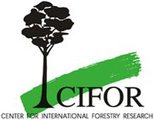The Center for International Forestry Research (CIFOR) has published a training manual titled, "Tenure Rights and Access to Forests: A Training Manual for Research," which outlines the importance of addressing land tenure in order to balance international investments in forests with local needs and priorities.
 21 March 2013: The Center for International Forestry Research (CIFOR) has published a training manual, titled “Tenure Rights and Access to Forests: A Training Manual for Research,” which outlines the importance of addressing land tenure in order to balance international investments in forests with local needs and priorities.
21 March 2013: The Center for International Forestry Research (CIFOR) has published a training manual, titled “Tenure Rights and Access to Forests: A Training Manual for Research,” which outlines the importance of addressing land tenure in order to balance international investments in forests with local needs and priorities.
The manual defines land tenure as, “who is allowed to use which resources, in what way, for how long and under what conditions, as well as who is entitled to transfer rights to others and how.” In discussing the importance of secure land tenure, the manual clarifies that land tenure doesn’t guarantee sustainable forest management, but it does facilitate improved food security and poverty alleviation.
The publication identifies a number of considerations with regard to land tenure including a tendency to usurp local and indigenous rights, a disconnect between land tenure and access to benefits, and risks from theft and eviction associated with land tenure rights. To address these challenges, the manual suggests that additional attention should be paid to who has the ability to benefit from forests and that capacity should be built within local organizations and social groups.
CIFOR is an member of the Consultative Group on International Agricultural Research (CGIAR) [CIFOR Blog: New training manual gives researchers tools to tackle tenure] [Publication: Tenure Rights and Access to Forests: A Training Manual for Research: Part I. A guide to key issues]